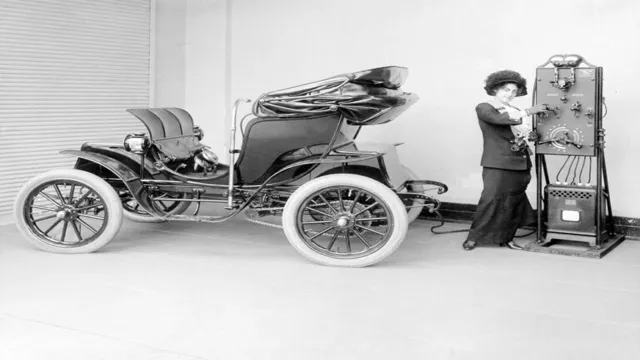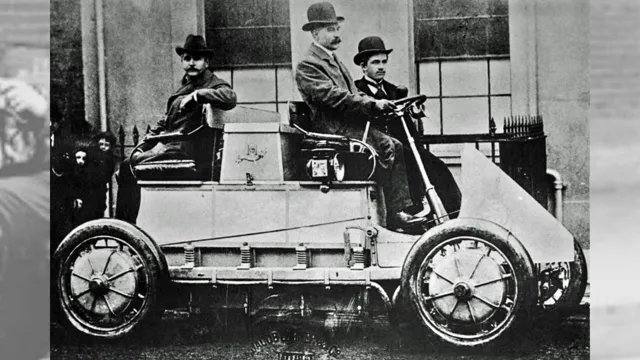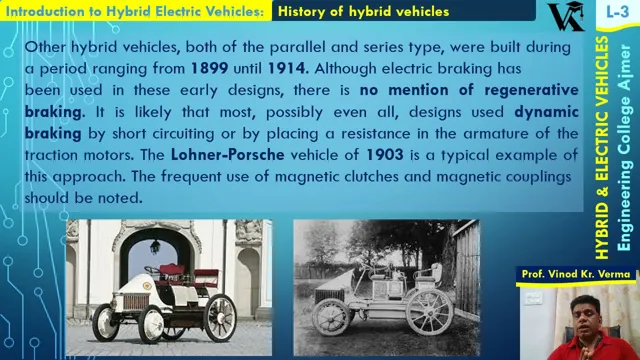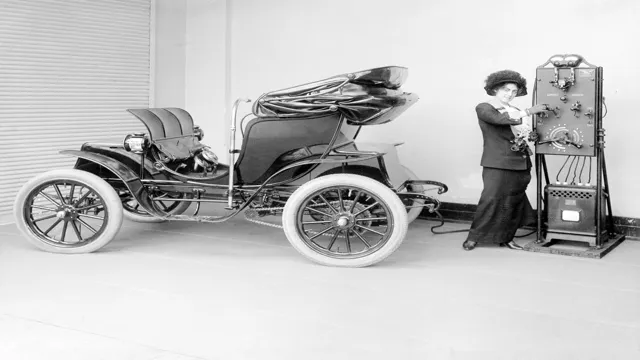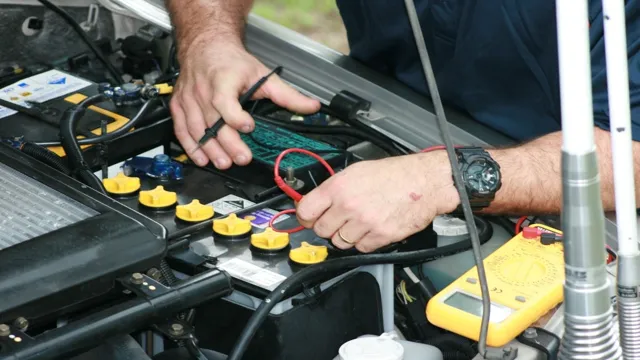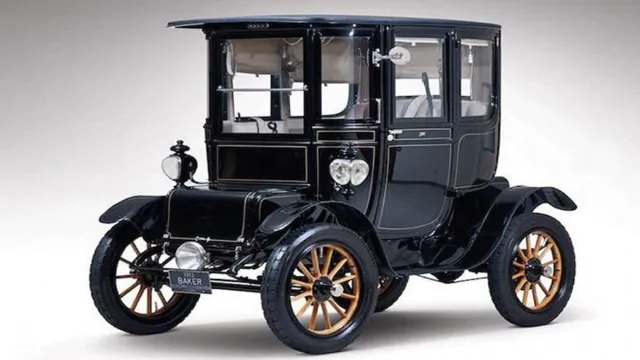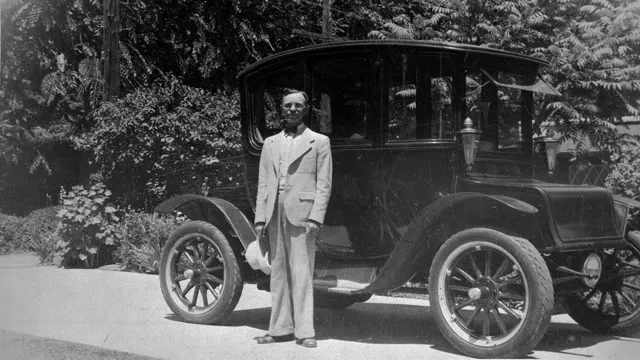Revolutionary Ride into the Past: Uncovering the Fascinating History of Electric Cars
Electric cars are becoming more and more popular these days, but did you know that they date back to the early 1800s? That’s right – the first electric car was invented nearly two centuries ago! Since then, electric cars have undergone many changes and improvements, and they now represent a viable and practical alternative to gasoline-powered vehicles. But how did we get here? In this blog post, we’ll take a closer look at the history of electric cars, from their humble beginnings to their current resurgence in popularity. So buckle up and let’s take a ride through time!
Early Years of Electric Cars
Electric cars may seem like a recent invention, but their history actually dates back to the late 19th century. In fact, the earliest electric cars were developed around the same time as gasoline-powered vehicles. The first electric car was created in Scotland in 1837, but it was not until the late 1800s that electric motors became powerful enough to make the electric car a practical alternative to gas-powered cars.
By the turn of the century, electric cars were becoming popular, particularly in urban areas where they were used as personal transportation and as taxi cabs. However, despite their early success, the high cost of production, limited range, and the development of the interstate highway system eventually led to the decline of the electric car. It would take many years and advancements in technology before electric cars would make a comeback as a viable form of transportation.
Late 1800s – Early 1900s
During the late 1800s and early 1900s, electric cars were in their early years. At this time, electric cars were competing with steam and gasoline-powered vehicles for dominance. However, electric cars were particularly popular among women because they required less physical effort to operate and did not emit fumes or require a hand crank to start.
Additionally, electric cars were considered more luxurious due to their smooth and quiet ride, making them attractive to the affluent. Nevertheless, the high cost of manufacturing electric cars and the limited range of the batteries made them unattractive to the mass market. The availability of cheap gas and the invention of the electric starter motor eventually rendered electric cars obsolete.
Nonetheless, the notion of electric cars has never been fully discarded, and electric vehicles are experiencing a resurgence in popularity thanks to advancements in battery and charging technology.
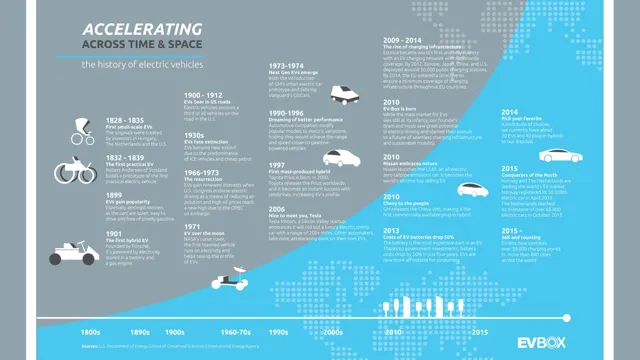
Advancements in Battery Technology
Electric cars have come a long way since their early days in the 19th century. In the early years, electric cars were quite popular, accounting for nearly one-third of the cars on American roads in the early 1900s. However, their popularity waned as gas-powered cars became more affordable and readily available.
One of the primary reasons for this was the limited range of early electric cars due to the battery technology available at the time. These batteries were heavy and had a limited capacity, and charging them would take hours. But with advancements in battery technology, things have changed.
Today’s batteries are smaller, lighter, and have a much higher capacity. They also charge faster, making it possible to cover significant distances in electric cars. The use of lithium-ion batteries has made electric cars much more efficient, with longer ranges and shorter charging times.
In fact, electric cars are now fast, reliable, and much more affordable than ever before. These advancements in battery technology have revolutionized the automotive industry, making it possible for electric cars to become a practical and sustainable option for everyday transportation.
Decline and Resurgence of Electric Cars
The history of electric cars can be traced back to the 19th century when electric vehicles (EVs) were a popular mode of transportation for the elite. However, the popularity of gas-powered cars eventually overshadowed the EV market. It wasn’t until the 1990s that electric cars saw a resurgence due to concerns over environmental pollution and dependence on foreign oil.
The first commercially successful EV, the Toyota Prius, was released in 1997 and sparked a new era of electric cars. In recent years, the popularity of electric cars has surged thanks to advancements in technology and a growing awareness of climate change. Today, EVs are more affordable, efficient, and practical than ever before, making them a viable option for everyday drivers.
Governments around the world are also providing incentives to encourage people to switch to EVs, further driving their adoption. However, the road to widespread EV adoption isn’t without obstacles. The infrastructure needed to support EVs, such as charging stations, is still lacking in many areas.
Additionally, some people are hesitant to switch to EVs due to concerns about range anxiety, lack of availability, and higher upfront costs. Nevertheless, the future looks bright for electric cars, and experts predict that they will only continue to grow in popularity.
Oil Dominance and Lack of Infrastructure
The oil dominance of the global transportation industry has long been a barrier to the development of electric cars. Without the necessary infrastructure to support a transition to electric vehicles, oil continues to reign supreme. However, there has been a recent resurgence in the popularity of electric cars, with more and more consumers opting for this eco-friendly and cost-effective option.
The decline of oil is upon us, and modern infrastructure is being developed to support electric cars. It’s like a game of chess, with each move being carefully calculated and executed to capture the king. The oil industry has been in control for so long, but now there is a new player on the board, positioning itself for a win.
With the development of advanced batteries and charging stations, the era of electric cars is upon us. The future is bright, and there’s no turning back. Will you make the move to electric?
Environmental Concerns and Regulation
Electric Cars Electric cars have had a tumultuous journey through history. Their decline in popularity can be attributed to various factors, such as the low availability of electricity and the advent of cheaper gasoline-powered cars. However, the recent resurgence of electric cars correlates with increasing environmental concerns and stricter regulation of emissions.
Electric cars have proven to be a more sustainable alternative to gasoline-powered cars, as they emit significantly fewer pollutants. Additionally, advancements in technology have significantly increased their efficiency and range. This resurgence is further fueled by various government incentives and subsidies.
Consumers are now more environmentally conscious and are willing to invest in eco-friendly car alternatives. As battery technology continues to evolve, electric cars are becoming a more viable option for consumers. In conclusion, the resurgence of electric cars demonstrates the potential for eco-friendly vehicles to become mainstream and may ultimately contribute to a greener future.
Innovators and Pioneers in Modern Electric Cars
The decline and resurgence of electric cars is a fascinating topic that has captivated the attention of innovators and pioneers in the industry. Historically, electric cars have been around since the early days of the automobile, but their popularity waned as the gasoline engine took center stage. However, in recent years, electric cars have made a resurgence, thanks to advancements in technology and the growing concern over climate change and environmental sustainability.
Today, electric cars are more efficient, affordable, and practical than ever before, and are being embraced by a new generation of drivers who are looking for a cleaner, greener way to travel. But the journey from decline to resurgence has been a long and winding road, marked by ups and downs, triumphs and setbacks, and the tireless efforts of countless pioneers and innovators who have dedicated their lives to make electric cars a reality.
Current State of Electric Cars
The history of electric cars dates back to the 1830s when the first electric vehicle was invented. However, it wasn’t until the 1990s that electric cars started to gain popularity as environmental concerns grew, and consumers became more aware of the benefits of electric vehicles. In the past decade, electric cars have exploded in popularity, and their technology has come a long way.
Today, electric cars are more efficient, have longer ranges, and higher performance than ever before. Companies like Tesla, Nissan, and BMW are leading the charge in electric car innovation, and governments around the world are offering incentives to encourage the adoption of electric vehicles. Despite the progress, there are still obstacles to overcome, such as high initial cost, limited charging infrastructure, and range anxiety.
However, as the technology continues to improve, and more people switch to electric cars, we may see a future where combustion engines are obsolete, and electric cars rule the roads.
Major Players and Models in the Industry
The electric car industry has grown significantly in recent years, and major players like Tesla, Nissan, and BMW are leading the way. With improved battery technology, longer ranges, and faster charging times, electric cars are becoming a more viable option for daily drivers. However, the current state of electric cars is not perfect.
One major concern is the lack of charging infrastructure, making long-distance driving a challenge. Additionally, electric cars are still more expensive than traditional gas-powered vehicles, making them less accessible to many consumers. Despite these challenges, electric cars continue to gain popularity as more people prioritize sustainability and environmental impact.
The industry is constantly evolving, with new models and technology advancements on the horizon. As it continues to grow, electric cars have the potential to revolutionize the way we think about transportation, and create a brighter future for the planet.
Improvements in Battery Range and Charging Infrastructure
The current state of electric cars is rapidly changing and evolving. One of the biggest improvements that we are seeing is in battery range and charging infrastructure. In the past, electric cars had limited range and took a long time to charge.
However, now many models can go over 200 miles on a single charge and charging times have been greatly reduced. With advancements in technology, electric cars are becoming more efficient and can now charge faster than ever before. Along with an increase in battery range, we are also seeing improvements in charging infrastructure.
Charging stations are becoming more prevalent and easier to access. This makes it easier for drivers to charge their cars on the go, making electric cars a more practical option for everyday use. As these improvements continue, we can expect to see even more people switching to electric cars and reducing their carbon footprint.
Future of Electric Cars
History is a crucial aspect that shapes the future of electric cars. Since the first electric car was invented in the late 1800s, the idea of having sustainable transportation has appealed to people. The early electric cars were expensive and had limited range, making the gasoline-powered cars more popular.
However, over the years, electric vehicle technology has improved in terms of battery technology, motor efficiency, and charging infrastructure. The emergence of Tesla has stimulated the market and added excitement to the development of electric cars. Now, electric cars are becoming more affordable and offering longer ranges, making them a viable option for more people.
The history of electric cars not only inspires the invention of new technologies but also encourages the transition towards a sustainable future.
Predicted Growth and Advancements in Technology
The future of electric cars is looking bright, with predicted advancements and growth in technology. As more and more people become environmentally conscious and demand more sustainable transportation options, the electric car market is expected to boom. With the development of better battery technology and increased infrastructure, the range and convenience of electric cars are constantly improving.
Furthermore, as more automakers shift their focus to electric models and governments incentivize their purchase, the cost of electric cars is likely to decrease. As a result, we can expect to see a surge in electric cars on the roads in the coming years, as they become more accessible to a wider range of consumers. The benefits of electric vehicles, including lower maintenance costs and reduced greenhouse gas emissions, make them a smart choice for the future of transportation.
With these advances in technology, electric cars are poised to become the norm rather than the exception.
Conclusion
After years of being dismissed as a novelty, electric cars are finally gaining the attention and respect they deserve. With advancements in technology, battery life, and charging infrastructure, the future of transportation is looking brighter and greener than ever before. Who knows what the future holds for electric cars, but one thing is for sure – the race to zero emissions is on, and electric vehicles are leading the way!”
FAQs
When were electric cars first invented?
Electric cars were first invented in the 1830s, with Scottish inventor Robert Anderson being credited with creating the first crude electric vehicle.
How did electric cars become popular in the early 1900s?
Electric cars were popular in the early 1900s because they were clean, quiet, and easy to drive. They were particularly popular with women as they did not require manual cranking to start and did not produce exhaust fumes.
Why did the popularity of electric cars decline in the early 20th century?
The popularity of electric cars declined in the early 20th century due to the widespread availability of cheap gasoline, improvements in gasoline engine technology, and the advent of mass-produced automobiles that made gasoline-powered cars more affordable.
What has led to the recent resurgence of interest in electric cars?
The recent surge in interest in electric cars has been driven by concerns over air pollution and climate change, advancements in battery technology that have increased the range and performance of electric cars, and government incentives to encourage the adoption of electric vehicles.

